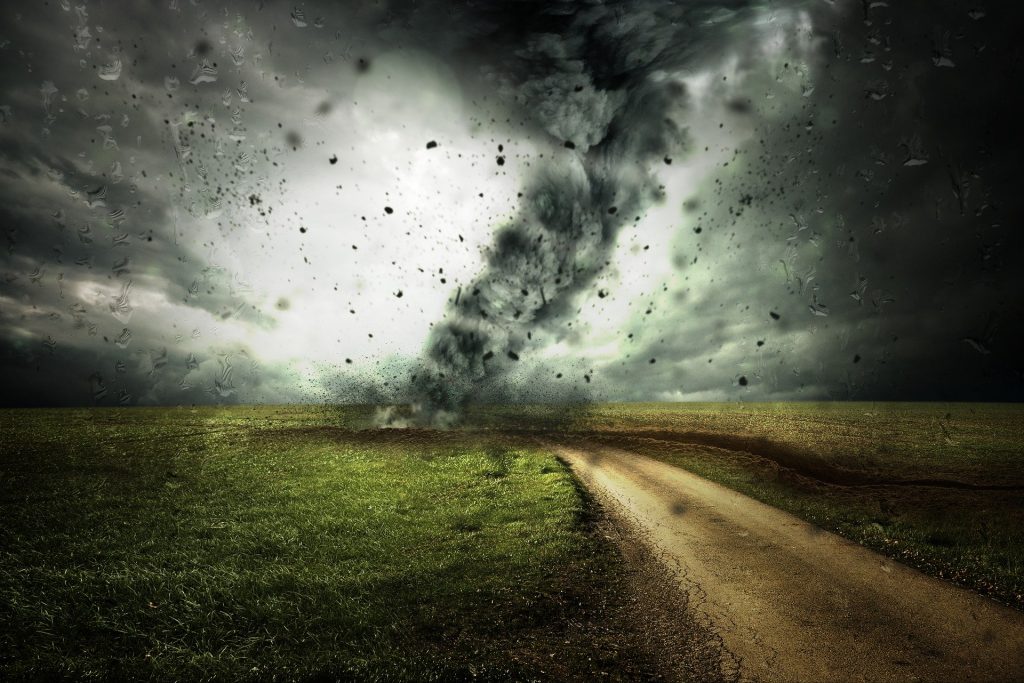We can get through this COVID-19 pandemic together: Here is how
Here at the Atlantic Council, we recognize that working to benefit people, prosperity, and peace for all globally requires committed public servants. A year ago in 2019, Dr. Greg Treverton and Dr. Molly Jahn, as well as (the would be future GeoTech Center Director) Dr. David Bray, and other authors released the result of a year-long study that analyzed the impact of numerous long-term trends in the United States’ government workforce over a period of two decades.
This study concluded — again in early 2019 — that long-term trends had significantly diminished the capacity of government institutions to respond to rapid cycle stressful events. The study also concluded that overall institutional and workforce trends in the United States had reached a point where critical government operations might fail in stressful events that were likely to occur. Such a prediction of the risk of government institutions to respond to a crisis was made with the recognition that being a committed public servant can be especially hard in today’s world that includes increasing polarization in open societies, increasing misinformation, larger challenges of coordination, and larger challenges of legacy processes that may be misaligned for the needs of our changing world.
A year after that study, the COVID-19 pandemic happened.
With the pandemic it became clear that open societies, to include United States and parts of Europe, have let the necessary coordinating institutions needed for responding to such disruptions wane. Specifically: the COVID-19 pandemic unfortunately demonstrates what this prescient study warned officials in the United States about a year ago — namely that should have been a responsive collaboration, between both the public and private sectors, to a national and global emergency instead found that the governing institutions necessary for a rapid, adaptive response had been neglected for too long. Yet make no mistake, there are committed civil servants, members of the military, and non-partisan senior executives – at all levels of governments including local, state, federal, and tribal in the United States as well as other open societies. These dedicated individuals have been doing all that they can to help communities local and global navigate these turbulent times.

Despite the current COVID-19 turbulence, we can get through this together. Here is how:
First, leaders from both sides of the political aisle, as well as from the private sector, must recognize that the United States — and free and open societies in general around the world – need a rejuvenation that begins by recognizing that either renewed or *new* institutions are required to collaborate, coordinate, and adapt to new and emergent concerns that require both rapid public and private sector responses. The post-World War II institutions may not fit our interconnected world of 2020. They either need to be renewed or new, networked institutions that involve both public and private sector actors if we are to navigate both the current COVID-19 crisis and be prepared for potential future ones too.
Second, as the research that the 2019 study showed, the political environments for non-partisan senior executives in public service have gotten increasingly toxic over the last decade – due in a large part to an increase in hyper-partisan politics in the United States and in Europe. Combined with a world in which misinformation of all types and biases can spread must faster than the truth, which itself represents a significant challenge we are seeing with COVID-19, and the hard work of non-partisan senior executives will continue to face crises where the response mechanisms to address such emergency situations have atrophied. To fix this, open societies around the world must ask more of our political officials, to include pulling away from hyper-partisan politics and valuing non-partisan public service for a commitment to the good of communities local and global. There is no textbook for the future ahead, nor is there “zero risk”, yet we need leaders willing to build bridges across nations and sectors. We also need those same leaders to be willing to do, learn, and adapt as they help us all make sense of the way through the post-COVID-19 era ahead.
Third, open societies must re-awake shared community importance of a committed public and private sector ethos that supports a functioning set of governance activities for the health of towns, respective states, and nation, regardless of either individual or national politics, partisan media, or those who would prefer more autocratic regimes. It is only with a functioning public and a private sector that free, open societies will emerge from this current COVID-19 crisis stronger than they did before.
Looking toward the future ahead, the only way for open societies to navigate through the current pandemic is by mobilizing both private sector and public sector leaders to work together on the long-term recover. Here at the Atlantic Council GeoTech Center, we seek to embody a similar “learn by doing, adapting, and leading” model with the hope that leaders from all sectors and all nations, regardless of politics, will do the same to benefit people, prosperity, and peace to ensure as a world we turn things around from this current mess that we collectively now confront.
Onwards and upwards together.
Molly M. Jahn is the Founding Principal of the Jahn Research Group and former Deputy and Acting Under Secretary, USDA; Gregory F. Treverton was Chair of the U.S. National Intelligence Council until January 2017 and is now Professor of the Practice at the University of Southern California. Both are Senior Fellows with the Atlantic Council GeoTech Center.
How difficult the task to quench the fire and the pride of private ambition, and to sacrifice ourselves and all our hopes and expectations to the public weal! How few have souls capable of so noble an undertaking.

The GeoTech Center champions positive paths forward that societies can pursue to ensure new technologies and data empower people, prosperity, and peace.